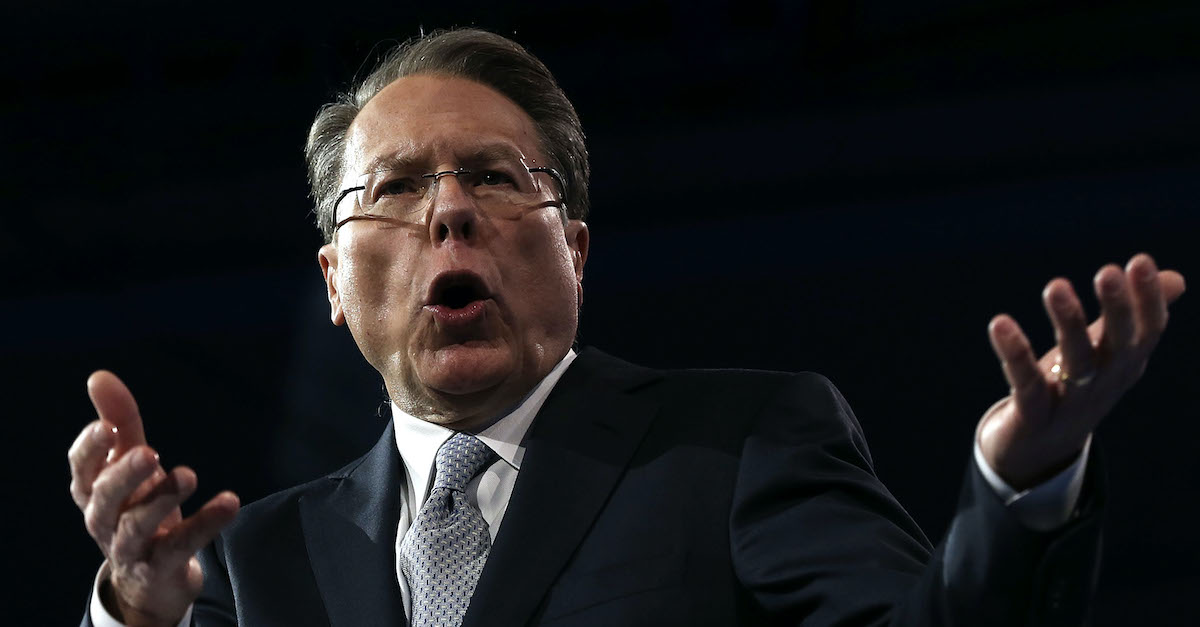
The National Rifle Association avoided the “corporate death penalty” on Wednesday, as a judge advanced New York Attorney General Letitia James’s (D) lawsuit without the dissolution claims.
Unless reversed on appeal, the ruling means that the powerful gun group that marked its 150th birthday late last year escaped one of the most formidable threats to its continued operation.
Manhattan Supreme Court Justice Joel Cohen called the attorney general’s lawsuit “a grim story of greed, self-dealing, and lax financial oversight at the highest levels of the National Rifle Association,” if she could prove those claims. But Cohen found that the accusations did not merit the ultimate penalty.
“Her allegations concern primarily private harm to the NRA and its members and donors, which if proven can be addressed by the targeted, less intrusive relief she seeks through other claims in her complaint,” Cohen wrote in a 42-page decision and order. “The complaint does not allege that any financial misconduct benefited the NRA, or that the NRA exists primarily to carry out such activity, or that the NRA is incapable of continuing its legitimate activities on behalf of its millions of members. In short, the complaint does not allege the type of public harm that is the legal linchpin for imposing the ‘corporate death penalty.’ Moreover, dissolving the NRA could impinge, at least indirectly, on the free speech and assembly rights of its millions of members. While that alone would not preclude statutory dissolution if circumstances otherwise clearly warranted it, the Court believes it is a relevant.”
Attorney General James said that her team is considering their legal options.
“Today, the court affirmed my office’s right to pursue its long-standing claims that fraud, abuse, and greed permeate through the NRA and its senior leadership,” she wrote in a statement. “While we’re heartened that the judge rejected the NRA’s attempts to thwart most of the claims in our case against the NRA, we are disappointed that the judge ruled against the dissolution portion of the case.”
The NRA and its executive vice president Wayne LaPierre have tried a counteroffensive in various jurisdictions to try to thwart the lawsuit. The organization countersued in state and federal court in New York, and LaPierre secretly arranged for the group to file an ill-fated bankruptcy petition in Texas, which a judge rejected in an opinion excoriating LaPierre for blindsiding the organization’s top officials.
“What concerns the Court most though is the surreptitious manner in which Mr. LaPierre obtained and exercised authority to file bankruptcy for the NRA,” U.S. Bankruptcy Judge Harlin Hale wrote in ruling last May. “Excluding so many people from the process of deciding to file for bankruptcy, including the vast majority of the board of directors, the chief financial officer, and the general counsel, is nothing less than shocking.”
LaPierre’s ill-fated decision to petition for bankruptcy put the gun group under a harsh public glare. His bankruptcy trial testimony brought out evidence of his $300,000 purchases of Italian suits from a Beverly Hills Zegna, private air travel for him and his family, and excursions on Hollywood producer Stanton McKenzie’s 108-foot yacht, “Illusions.”
The attorney general argued during the Texas proceedings that the NRA’s bankruptcy gambit falsely presumed that they could not get a fair shake in New York and that dissolution was inevitable.
Shannon Watts, founder of the gun control group Moms Demand Action, argued that the NRA counting its continued survival as a victory shows how low it has fallen.
“The NRA’s bar is so low that they’re spinning the continuation of over a dozen claims against them and their executives as a win, but the rest of us know that this case is far from over,” Watts wrote i a statement. “Legal bills continue to reach new heights for the NRA, and combined with reports of declining revenue, the NRA may someday find itself having to file for bankruptcy again, only this time for real.”
The NRA’s attorneys did not immediately respond to an email requesting comment.
This is a developing story.
Read the ruling, below:
(Photo by Alex Wong/Getty Images)